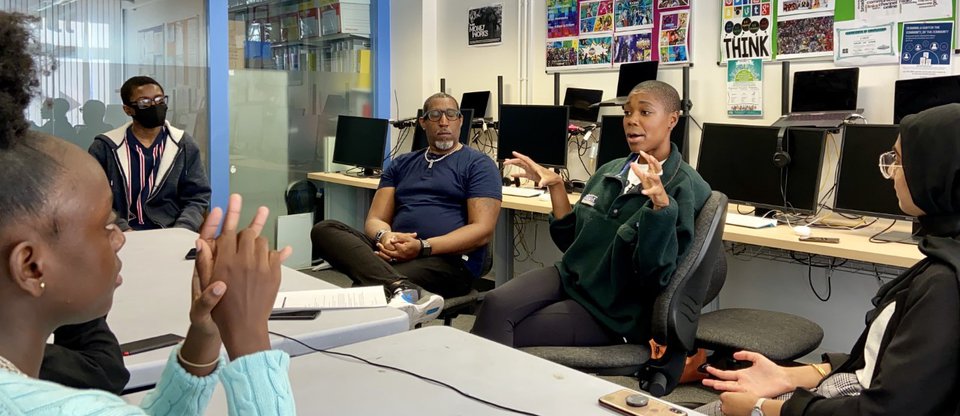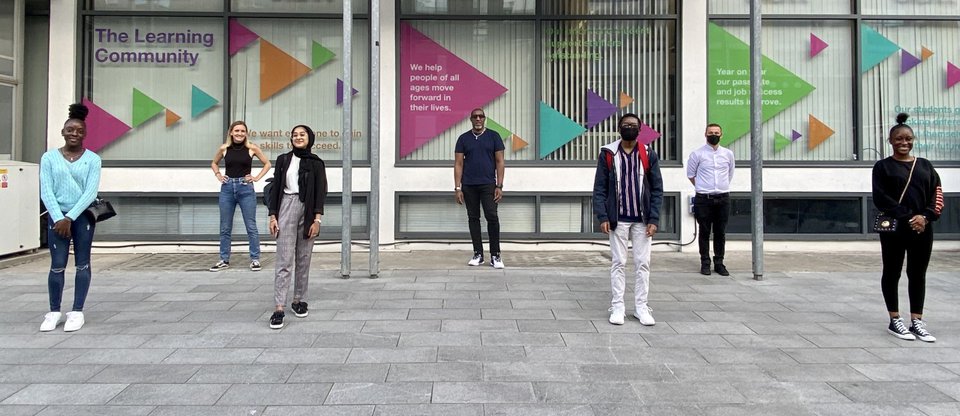London Citizens welcome Mayor’s plans for improved accountability for Metropolitan Police Officers as a first step
London Citizens welcome Mayor’s plans for improved accountability for Metropolitan Police Officers as a first step

London Citizens welcome the news of new methods of accountability for Territorial Support Group (TSG) officers and an overhaul of community monitoring . This will enable Lo ndon’s diverse communities including the black communi ty to closely scrutin ise the M etropolitan P olice S ervice (MPS) ’ s citywide activities , such as the TSG .
London Citizens have stated that systems of Independent Advisory Groups and Stop Monitoring Groups set up in the wake of Stephen Lawrence’s death and the Macpherson Report need more funding and support. They welcomed the fact MOPAC will overhaul its community monitoring structures to ensure that London’s diverse communities are better represented .
In London we want to see significant investment in these methods of accountability to give groups the power to properly and effectively hold the MPS to account, with the power to move officers on restricted street duty if they are misusing their powers.
Organising for a fairer police service
In London we have been organising on this and a number of other issues that black Londoners face at the hands of the police. Stronger accountability mechanisms for MPS officers and better training given to the police was just one of many recommendations that came out of a campaign that listened to 1,500 young people and parents across London on the challenges they face around safety. The results were clear : that too many young people feel unsafe because of the police, not in spite of them.
The feeling from London Citizens and its members is that black people in London face huge disproportionality at the hands of the police and urgent work needs to be done to rebuild relationships. This is compounded with MPS statistics that show that stop and searches increased by 84.2% during the first lockdown, and that black Londoners, who make up 12% of London’s population, received over 25% of fines given out for breaching lockdown .
In addition, we welcome the introduction of £1 million investment in community-led training for n ew police offic ers to ensure they can relate to communities well. Our leaders are excited to see refreshed s top and s earch Training for MPS officers – which incorporates cultural awareness and the impact of issues such as unconscious bias and disproportionality on communities across London .
Oran Blackwood, who is part of the campaign team, said: “I have seen reforms proposed before in the MPS. I was being stopped and searched in the 70s and 80s. Today is an important step to making sure Black Lives Matter , but more needs to be done to tackle systemic racism in the MPS. We hope this is the beginning of a journey that the police and City Hall will look back on with pride.”

A stronger community role
Over the last two years we’ve been calling for a stronger community role in developing better racial bias training for the police and better accountability mechanisms for the MPS.
The London Citizens alliance, made up of over 200 schools, faith and community groups, voted safety the number one issue faced by communities in March 2020.
Our action team have been calling for this year’s Action Plan for the MPS to ensure the legacy of George Floyd’s murder and Black Lives Matter’s agenda drive change in the way black communities are policed in London. The team also highlighted the importance of parents being involved in decision-making around policing and the safety of young Londoners.
Building on the Macpherson Report
London Citizens have been calling on the MPS to build on the legacy of the Macpherson Report and improve policing in London by shifting power back to communities:
To institute racial bias training by external community organisations throughout a police officer’s career.
Stronger community-led accountability for MPS officers and in particular the Territorial Support Group (TSG) officers.
An accountability system that allows community monitoring groups to sanction misuse of powers, starting with remedial training leading up to suspension of stop-and-search duty.
Quotes from our leaders
Josephine (16), one of our young leader s, said : “I am really impressed with the MOPAC report and the recommendations there. I do believe this is just the beginning and there is still a long way to go. But with the leadership of Sophie Linden, MOPAC and more importantly the inclusion of young adults, I believe the change that we want to see for our future generations of young people isn’t far away. Personally, I am mostly excited to see the plans for there to be more of a direct and effective approach for young people to hold police officers accountable in the future. I am really excited to continue to work to make sure these new structures create change now and for the future generation.”
Rachel Jones (2 9 ) , one of the leaders from the team , said: “It’s great to see the Police Commissioner acknowledging racism in the MPS and the need to keep the black community safe . We th ink this report has the potential to be a powerful moment in the history of the relationship between the black community and the police , if it’s implemented properly. There is a danger that we repeat the mistakes of history and don’t see all these proposed changes take place. These are the biggest changes in the MPS since the introduction of the M a c p herson report and w e are really excited to be working with the M PS to develop methods of community accountability . ”





